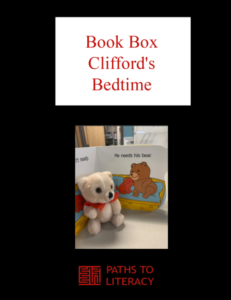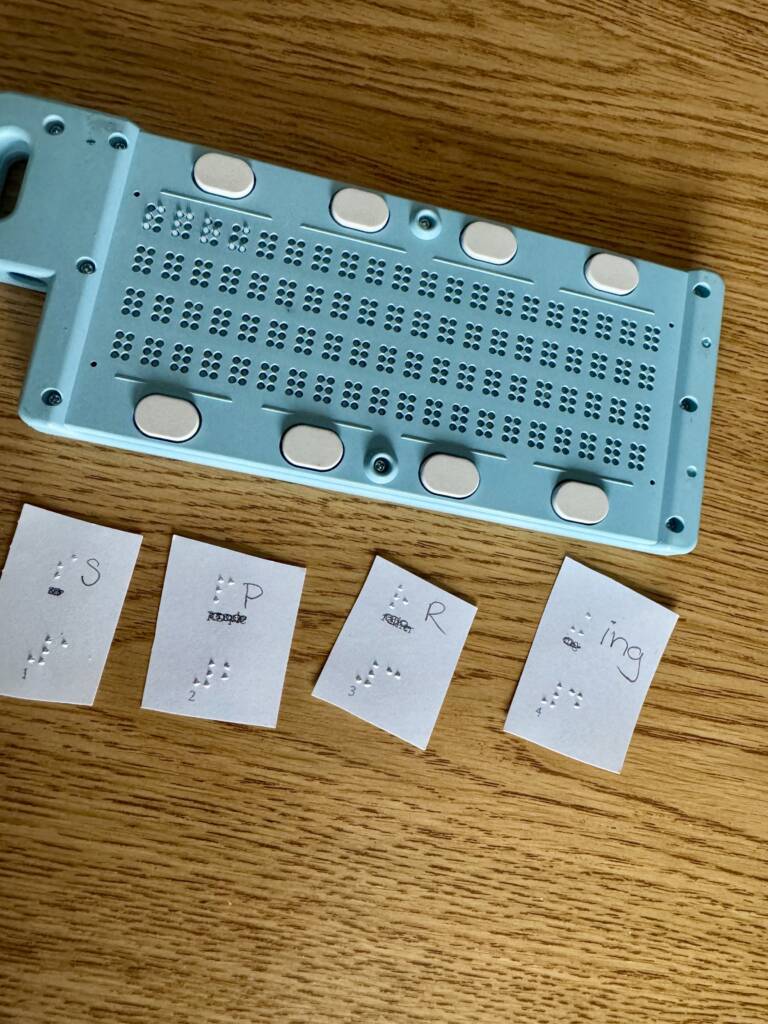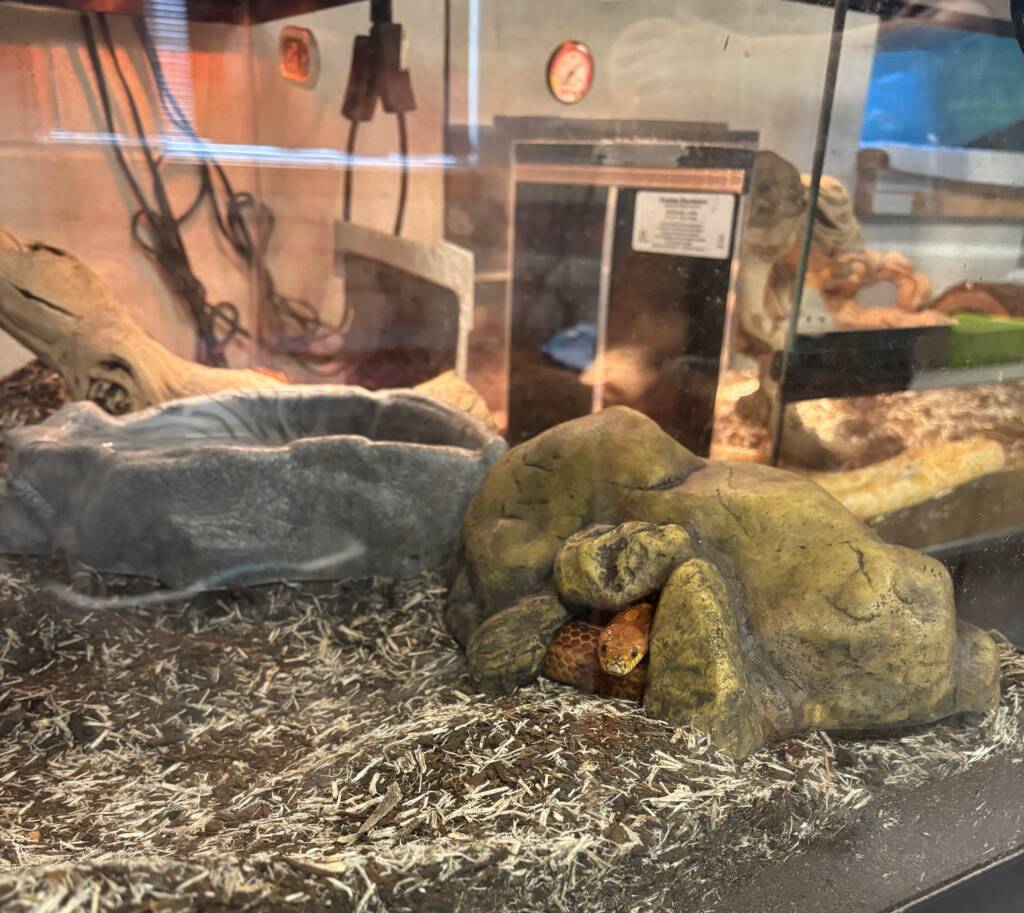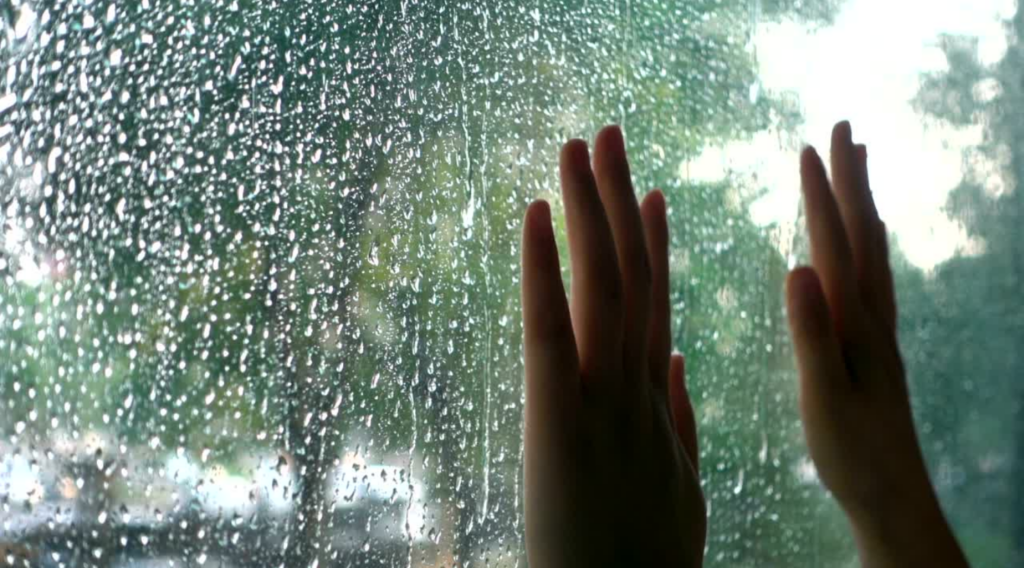Adapting conventional books for students who are blind, visually impaired, or deafblind is a great way to provide access to literacy in a meaningful way. Additionally, using appropriately adapted books or book boxes can support language and concept development for young children or those with complex access needs. Book boxes (also known as storyboxes) can support families and caregivers to share a reading experience with their child(ren), have conversations about objects that naturally appear in their environments, and share interactions that include turn taking, movements, and sounds.
In order to put this book box together, I chose a box with a lid. I collected objects that went along with some of the text in the book. It’s not necessary to have something for every single page or word in the story. Focus on finding items that children can interact with in similar ways that the characters in the story do. I also like to try and use real objects whenever possible. This supports concept development and gives a more accurate picture of the events in the story. There will be times when you can’t use a real object, and during these times, I try to consider a real characteristic of the object that I might be able to include.
Book: Clifford’s Bedtime
Author: Norman Birdwell
Objects:
- Small teddy bear
- Doll
- Blanket
- Bowl
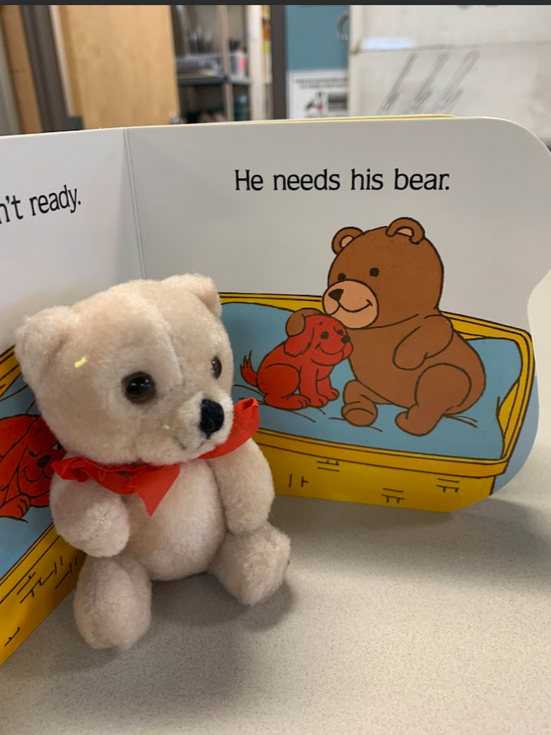
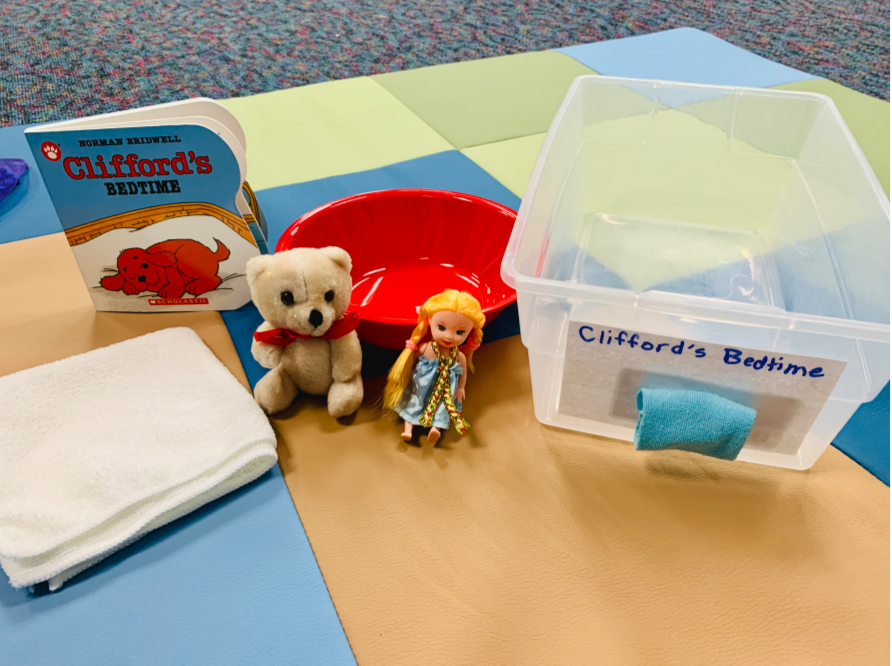
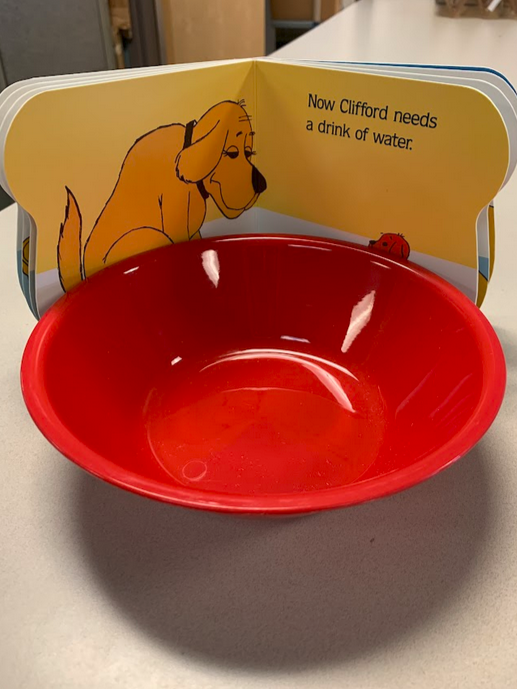
Before you read the story:
- allow the child to explore the objects in the box
- ask the child if they can name any of the objects in the box or list what they are used for
- encourage the child to make predictions about what will happen in the story based on a review of the items in the box
- explore the book and label the front cover, back cover, and spine, as appropriate for the child
As you read the story:
- present the objects in the box and engage in a conversation about how the characters are interacting with the objects
- label the objects
- take turns exploring the object and labeling its features
- make predictions about what might be coming next in the story or what might happen as a result of the current action
- practice turning pages and manipulating the book
- point out words or letters in print and braille as appropriate
After reading the story:
- sequence the items into the order that they appeared in the story
- ask the child to fill in an object within the sequence of the story
- ask the child to name the objects and/or describe how they fit into the story
- talk about your favorite parts of the story using the objects in the box
- imitate actions that the child takes with the objects in the box
- practice “finishing” the objects and the book by returning them to the box
Please visit:
Bringing Literacy to Life Through Storyboxes for more great ideas using this book and more!
For More Ideas on Book Boxes Visit our Microsite
